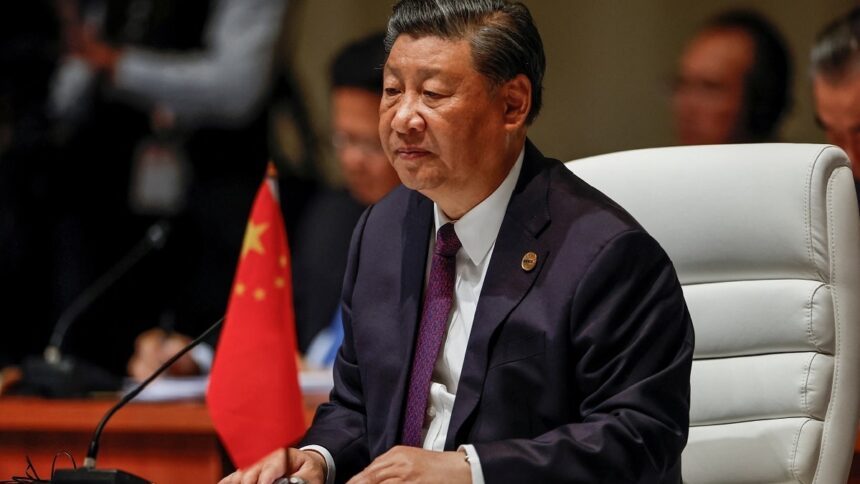Veteran journalist Fareed Zakaria said there will be “significant implications” if Chinese President Xi Jinping skips the G20 Summit in New Delhi later this month.
Zakaria pointed out that such a decision by Xi would have significant implications, potentially signaling a shift in China’s approach to global affairs. During an interview with Rahul Kanwal, Executive Director, Business Today Fareed Zakaria said that of the 16 border disputes that China has had over the last 20 years with several of its neighbours, the one with India is the only one which has not been resolved.
“There’s something going on there where there is a degree of competitiveness or neuralgia about it…Maybe because it involves Tibet,” said Zakaria.
The geopolitical expert said if Xi Jinping skips the G20 summit, it would “add to the feeling” that China is “not trying to move forward and resolve the tensions with India”.
India is awaiting a written confirmation from China on President Xi Jinping’s participation in the G20 Leaders Summit scheduled here next weekend, Muktesh Pardeshi, Special Secretary for G20, said on Friday.
”We have seen some reports in the newspapers. But, we go by written confirmation. And we have not seen (a written confirmation). Unless we see that I am not in a position to say either way,”Pardeshi told PTI when asked about reports of Xi skipping the G20 meeting on September 9-10 and deputing Prime Minister Li Qiang for the event.
Russian President Vladimir Putin has already conveyed to Prime Minister Narendra Modi that it will not be possible for him to travel to India to participate in the summit.
Zakaria also raised concerns about China’s economic challenges, including its real estate market and mounting debt, which have led to increased household savings as people seek to secure their finances independently.
Zakaria also expressed scepticism about the effectiveness and future prospects of the BRICS organisation comprising of Brazil, Russia, India, China and South Africa. He pointed out that the concept of BRICS emerged from a Goldman Sachs economist’s prediction that these five nations would be the world’s powerhouse economies. However, Zakaria noted that this prediction had not materialised as expected. Indian PM Narendra Modi was recently in South Africa to attend the BRICS Summit.
The renowned foreign affairs expert provided deep insights into India’s evolving role on the global stage and the intricate dynamics of international relations. He spoke about various aspects of India’s ascent to global stage, its diplomatic strategies, and the challenges posed by China.
Zakaria said: “India is powerful and crucial enough in terms of the nature of new geopolitics because of the rise of China. So, something like BRICS is really a kind of a nonsense organisation. If I can be honest, the term comes out of a Goldman Sachs economist who predicted that these were going to be the powerhouse economies of the future, which by the way has turned out to be completely untrue.”
Zakaria emphasised that BRICS was facing significant challenges and contradictions. For instance, Russia, one of the BRICS members, was in decline economically, technologically, and demographically, making it an unlikely leader for the organization. Additionally, BRICS had expanded to include countries with varying interests and philosophies, such as the Gulf states, which are often pro-American. This expansion had diluted the coherence and common objectives of BRICS, he said.
Zakaria further questioned the feasibility of BRICS developing a common currency, suggesting that such an idea was unlikely to materialise. Overall, he viewed BRICS as a somewhat ineffective and disparate organisation, emphasising the need for India to clarify its strategic objectives and align itself with democratic, value-based powers rather than solely relying on BRICS for international influence.
Zakaria also emphasised that India’s status as the world’s third-largest economy does not automatically equate to becoming the third most influential country globally. He highlighted the multifaceted nature of national power, encompassing not just economic and military might but also soft power, the ability to set agendas, and the promotion of values and ideas that resonate internationally.
The conversation delved into India’s ambition to become the voice of the global South; a role historically pursued by China. Zakaria noted that China has strategically invested in the developing world to establish itself as a leader of the global South, particularly in Africa. However, India, with its democratic principles and diplomatic acumen, possesses the potential to vie for this leadership role. Zakaria stressed India’s capacity to leverage soft power, engage in diplomatic initiatives, and champion democratic values that align with emerging democracies.
“The US has a $700 billion trade relationship with China. Nobody is asking India to choose in those terms. India needs to have a strong economic relationship with China but I think that one of the reasons that there’s so much goodwill toward India is because there’s a sense that this is a rising power coming out of Asia, representing the aspirations of 1.4 billion people which has historically espoused universal values, human rights and democracy,” said Zakaria.
Lastly, Zakaria explored the complexity of predicting China’s future foreign policy decisions, given its highly centralised power structure under Xi Jinping. He cited historical examples of declining powers adopting various strategies on the global stage, cautioning against simplistic assumptions about China’s trajectory.
“Nothing is inevitable. Look at what’s happening to China right now. Look at what happened to Japan after 40 years of heady economic growth. You have to persist, you have to continue to reform, you have to execute,” said Zakaria.
He added, “India has done a lot in the last 20 years under governments of both political coalitions, but there’s a lot more to do. I mean now, for example, there’s a great deal of talk about India becoming the new manufacturer and replacing China, but it’s going to be very hard because India remains very protectionist.”
Overall, the session provided a detailed and nuanced analysis of India’s growing economic significance, its potential to shape the global order, and the intricate dynamics of international relations, particularly in light of China’s evolving economic challenges and shifting foreign policy objectives.








